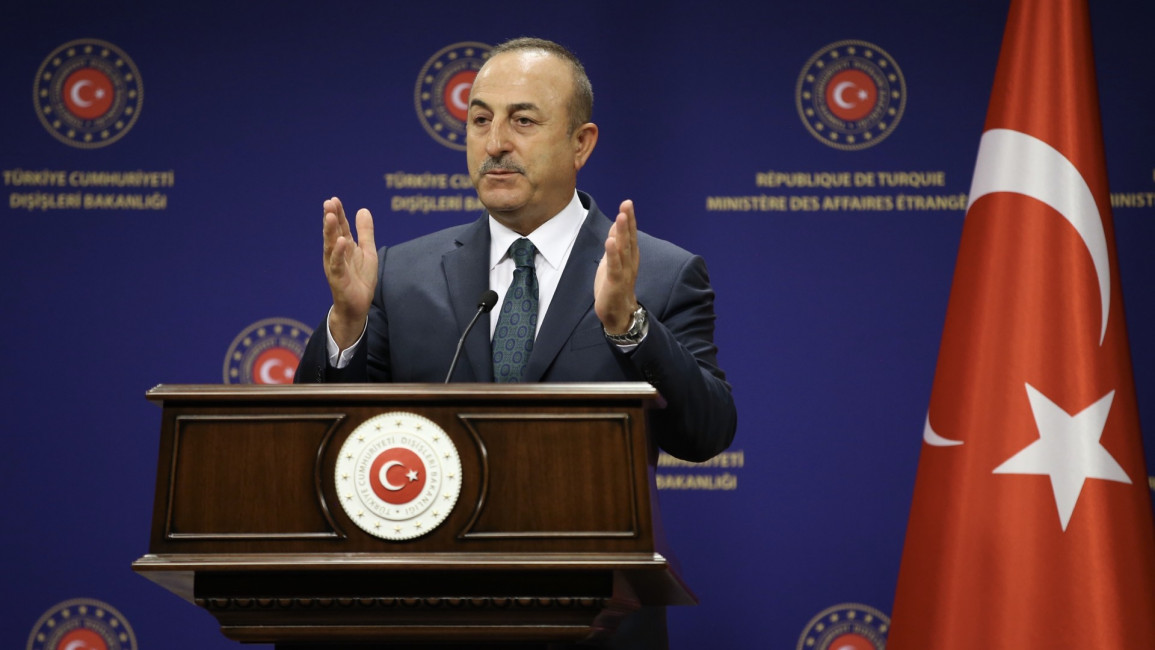Turkey hits out at France as EU ministers meet on Mediterranean crisis
Turkey accused France on Friday of acting like a bully and stepped up its own charm offensive as EU foreign ministers met to address an emerging crisis in the energy-rich eastern Mediterranean.
The search for oil and gas in disputed waters not far from Cyprus has pitted Turkey against its uneasy NATO ally Greece and the entire EU bloc.
Turkey's decision to send a seismic vessel accompanied by a small navy fleet into the increasingly volatile region on Monday prompted Greece to dispatch in its own military assets to observe what was going on.
France on Thursday also announced it was "temporarily reinforcing" its military presence in the eastern Mediterranean in support of Greece.
That decision only further worsened France's tensions with Turkey - already high because of opposing approaches to the Libya conflict and other parts of the Middle East - and saw the diplomatic rhetoric rise another notch.
"France especially should avoid steps that will increase tensions," Turkish Foreign Minister Mevlut Cavusoglu said on a visit to Switzerland.
"They will not get anywhere by acting like bullies, whether in Libya, the northeast of Syria, in Iraq or the Mediterranean."
|
President Recep Tayyip Erdogan on Thursday underscored the fraught nature of the standoff by warning of a "heavy price" to pay for those who threaten Turkey's Oruc Reis research ship.
"We can't let even the smallest attack go without an answer," Erdogan reaffirmed on Friday.
Erdogan said "there was something like this" that happened on Thursday but provided no details.
Another warship accompanying Oruc Reis "gave the necessary response. And then they withdrew to their ports," Erdogan said without specifying which nation's ships allegedly attacked Turkey's.
The Greek defence ministry denied being involved in any incident with the Oruc Reis.
Cavusoglu insisted that Turkey was looking for a peaceful solution to the crisis and was only expecting "common sense" from Greece.
"Of course we do not wish to escalate, but Greece should act with common sense," said Cavusoglu.
"We are always on the side of peaceful dialogue."
'These tensions are worrying'
EU foreign ministers are widely expected to reaffirm their support for Greece's interpretation of maritime boundaries and to urge all sides to respect international law.
But Erdogan's ministers counter that Greece is using its control of a few tiny islands off the coast of Turkey to claim an outsized share of the Mediterranean Sea.
It also cites examples of past international agreements that gave the coastal power the right to waters despite another nation's islands near its shores.
Germany has taken a leading role in trying to mediate the dispute.
Erdogan had followed German Chancellor Angela Merkel's urgings and suspended the Oruc Reis mission last month to give talks another chance.
Greece then signed a maritime agreement with Egypt that appeared aimed at countering a similarly controversial one Turkey had signed with the UN-recognised government in Libya last year.
The Egyptian deal was quickly followed by Erdogan's decision to push ahead with the Oruc Reis mission this week.
"These tensions are worrying," Merkel's spokesman Steffen Seibert said on Friday.
"What's important is de-escalation" and for countries "to talk directly to each other".
Erdogan said he agreed with Merkel by telephone on Thursday to "develop a process of protective understanding" with Greece.
"Merkel after speaking to me spoke to (Greek Prime Minister Kyriakos Mitsotakis). I hope she has expressed the line to him discussed with us."


![President Pezeshkian has denounced Israel's attacks on Lebanon [Getty]](/sites/default/files/styles/image_684x385/public/2173482924.jpeg?h=a5f2f23a&itok=q3evVtko)



 Follow the Middle East's top stories in English at The New Arab on Google News
Follow the Middle East's top stories in English at The New Arab on Google News


